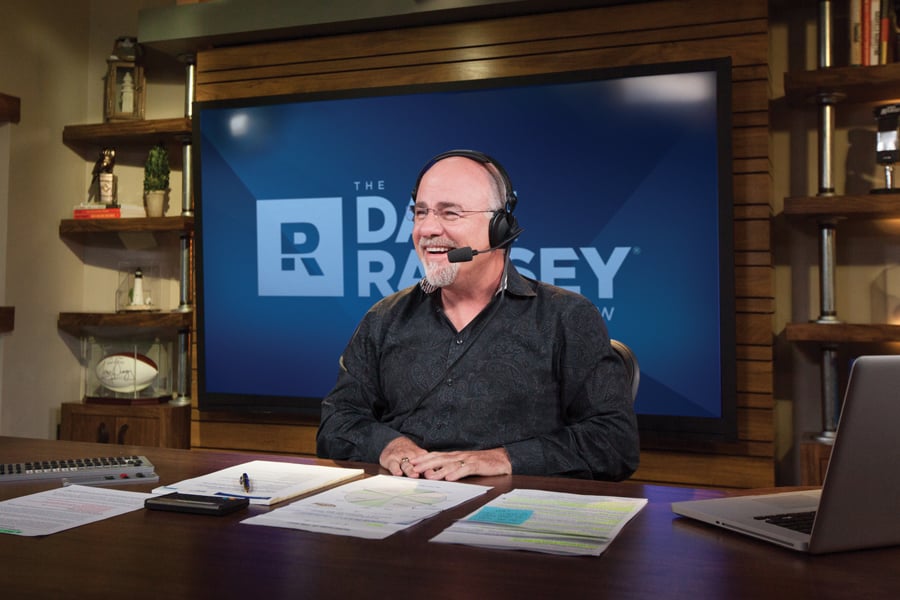

Dave Ramsey and financial advisors go together like ham and eggs. A small but motivated group of financial advisors pay Ramsey’s business, Ramsey Solutions, a fee for client referrals routed through his website that turn into “red hot” prospects, as some industry executives have said in the past, because of customers' fervor and devotion to Ramsey's financial nostrums.
The referral program, called Ramsey Trusted Providers, has been wildly successful for some financial advisors, who have told InvestmentNews in the past that they built books of business of up to $100 million in assets due in great part to Ramsey’s client referrals.
Ramsey isn't a licensed broker or financial advisor, but focuses on personal finance in his books and various radio shows and media appearances. His message is simple: Boost your savings, pay off your mortgage, and establish your financial well-being. He has built a mini-media empire on his personality and message.
But that simple message has sparked an unfavorable reaction among some, particularly Generation Z, or those born in the mid-to-late '90s, on social media. Some on TikTok have taken to using the hashtag #daveramseywouldntapprove as a way of thumbing their noses at the grizzled radio show host.
In an interview on Fox Business this week, Ramsey was asked about the friction between him and some young people with money. In response, he took the time to praise some, saying they were good with their money, but took a swipe at a wide swath of younger people, calling them "whiners on TikTok."
"There's a segment of them [younger generations] that just sucks," Ramsey said. "They're just awful. I mean, their participation trophy, they live in their mother's basement, and they can't figure out why they can't buy a house because they don't work, you know, stuff like that."
Targeting a group who could turn into potential clients for financial advisors is a dubious marketing strategy, executives said.
"When Ramsey or anyone segments an entire generation, that can’t turn out well," said April Rudin, CEO of an eponymous marketing firm. "Those are future investors, and he doesn’t know who he’s referring to. That discredits his own brand.
"From a messaging perspective, no one should be negative on social media about any group," Rudin said. "If you're criticized, just ignore it."
"It's tiresome to hear criticism of Gen Z, it's the same thing that was said about millennials when they were in their twenties," said Johnny Sandquist, CEO of Three Crowns Copywriting and Marketing. "It's an easy narrative to score some attention, and I don't like referral programs as a marketing strategy, or as a consumer experience.
"From an financial advisors' point of view, you're signing up to be part of a rat race and willingly pitting yourself against a bunch of advisors," Sandquist said. "The leads may express interest but it's an introduction linked to Dave Ramsey."

While industry statistics pointing to a succession crisis can cause alarm, advisor-owners should be free to consider a middle path between staying solo and catching the surging wave of M&A.

New joint research by T. Rowe Price, MIT, and Stanford University finds more diverse asset allocations among older participants.

With its asset pipeline bursting past $13 billion, Farther is looking to build more momentum with three new managing directors.

A Department of Labor proposal to scrap a regulatory provision under ERISA could create uncertainty for fiduciaries, the trade association argues.

"We continue to feel confident about our ability to capture 90%," LPL CEO Rich Steinmeier told analysts during the firm's 2nd quarter earnings call.
Orion's Tom Wilson on delivering coordinated, high-touch service in a world where returns alone no longer set you apart.
Barely a decade old, registered index-linked annuities have quickly surged in popularity, thanks to their unique blend of protection and growth potential—an appealing option for investors looking to chart a steadier course through today's choppy market waters, says Myles Lambert, Brighthouse Financial.
